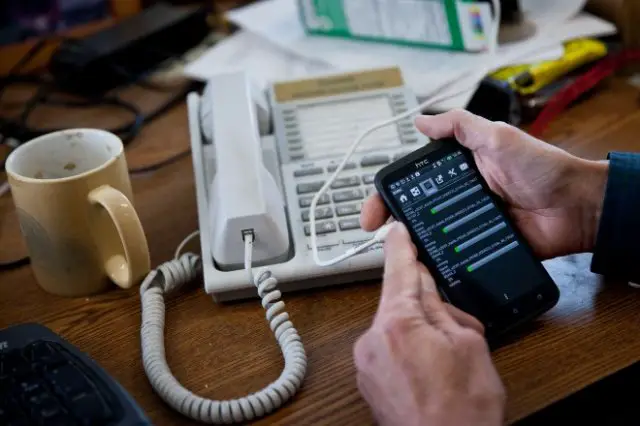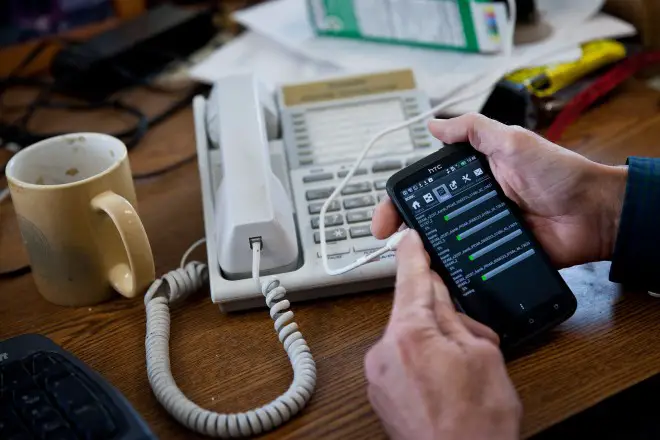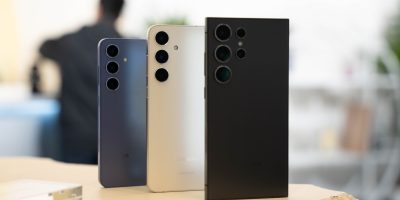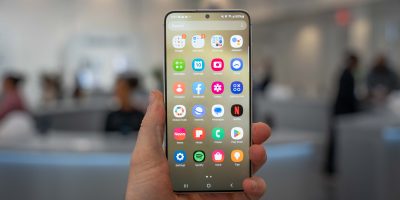
Today, when someone mentions crowdsourcing we think of sites like Kickstarter and IndieGoGo, but only a few years ago the term was more closely associated with projects like SETI@home. Developed in part by David Anderson, a computer science professor at the University of California at Berkley, the system tasked idle, network-connected PCs with using some of their extra processing power to aid in the search for extraterrestrial life.
Other projects developed around the concept, each with their own particular end goal, but have since fallen out of vogue. Anderson, who was always more interested in the computing aspect of SETI@home rather than the actual search for intelligent life among the stars, sees a new opportunity with mobile devices, however.
He is now aiding in the development of a mobile version of his crowdsourced computing method dubbed BOINCDROID (the original was simply BOINC, or Berkley Open Infrastructure for Network Computing). As the name implies, BOINCDROID is tailored for Google’s Android platform.
Anderson sees the increasing power of smartphones as well as their always-on nature as perfect for the next generation of crowdsourced computing. This time the extra processing power will be used to crunch numbers for Einstein@Home, a project searching for undiscovered black holes, pulsars, and gravitational anomalies among the universe.
But what about precious battery life? Data rates? Phones running BOINCDROID software will only be tasked with aiding Einstein@Home when charging and connected to a WiFi network. Don’t worry, Anderson is one step ahead.
[via Wired]











Awesome. I can’t wait until it’s available!
Sounds good
Hey, the name of the project isn’t BIONICDROID, it’s BIONICOID. http://boincoid.sourceforge.net No APK is ready yet.
http://boinc.berkeley.edu/download_all.php
Bottom of the page.
Correct me if I’m wrong (which I am not) but is that an opened box of THIN MINTS on this guys table? Oh great Android minds think alike…..I LOVE THOSE DAMN THINGS!
Your battery doesn’t charge very well when the phone is being used.
Funny. I found the apk file just fine. Try reading the primary site and find out where it originated from or just click the link provided. http://boinc.berkeley.edu/download.php
Hmmm..sounds interesting
I don’t understand why you would want to use mobile devices to do something like this. Why wouldn’t they make this more like folding at home and let the people with i7 3770k’s and a few GTX Titans let their rigs do the number crunching. It’ll actually be done within this century if you let rigs like that do it. Cellphones… that’s gonna take a long time unless you get a lot of people to contribute (which I don’t see happening).
Probably because there are more cellphones in the world than computers. Not that anyone will really run this on their phone.
Right! That’s what I’m saying. Some people on another forum I’m on do folding@home, which is for cancer. http://folding.stanford.edu/
As you can see, they only have 160k people, and they’ve been doing that for years and years now.
Okay, just for shits and giggles, I installed this on my note2. It waits until your battery is fully charged before it starts computing, so I don’t know what it does yet…
If I didn’t know any better, this has scam written all over it.
You know the whole give us “200 thousand bucks to look for black holes shtick”
Finally a use for my old junk-drawer phones…